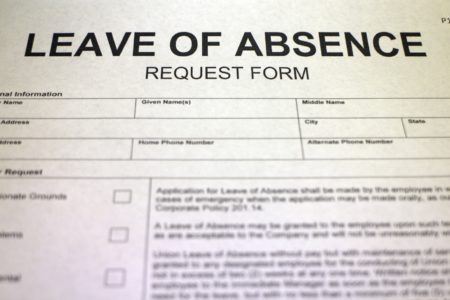
Most employers subject to the Family and Medical Leave Act (“FMLA”) know that an employee must work at least 1,250 hours in the previous 12 months to be eligible for 12 weeks of unpaid leave. In addition to leave, the FMLA provides employees with other protections, like the right to be reinstated at the completion of leave, the right not to have their FMLA benefits interfered with by their employer, and the right to be free from retaliation for using the FMLA.
Many employers think that an employee possesses no rights under the FMLA unless they satisfy the 1,250 hour requirement. That is a mistaken and dangerous belief. Even before working 1,250 hours, an employee’s right to be free from FMLA interference can be implicated. For example, some employees become pregnant before satisfying the 1,250 hour requirement, but they will give birth and need FMLA leave after completing 1,250 hours. An employer who terminates an employee in order to avoid future FMLA obligations violates the FMLA even if the employee has not worked 1,250 hours.
The first Eleventh Circuit case to discuss this issue was Pereda v. Brookdale Senior Living Communities, 666 F.3d 1269 (11th Cir. 2012). In June of 2009, Kathryn Pereda notified her employer that she was pregnant and would be requesting FMLA leave after the birth of her child on or about November 30, 2009. Pereda was terminated from employment in September of 2009. It was “undisputed that Pereda, at the time she requested leave, was not eligible for FMLA protection because she had not worked the requisite hours and had not yet experienced a triggering event, the birth of her child.” Pereda, 666 F.3d at 1272. Nevertheless, the Court found that Pereda was entitled to FMLA protection: “Without protecting against pre-eligibility interference, a loophole is created whereby an employer has total freedom to terminate an employee before she can ever become eligible. Such a situation is contrary to the basic concept of the FMLA.” Id. at 1273. In short, the Court held that Pereda could sue for FMLA interference and retaliation — even though she had not worked 1,250 hours before she requested leave.
Employers contemplating termination or discipline of an employee who is pregnant or suffering from a serious health condition should proceed very cautiously. Employers must consider not only whether the employee is currently eligible for FMLA leave, but also whether the employee will be eligible in the future. Without taking all facts into consideration, employers risk an inadvertent violation of the FMLA.